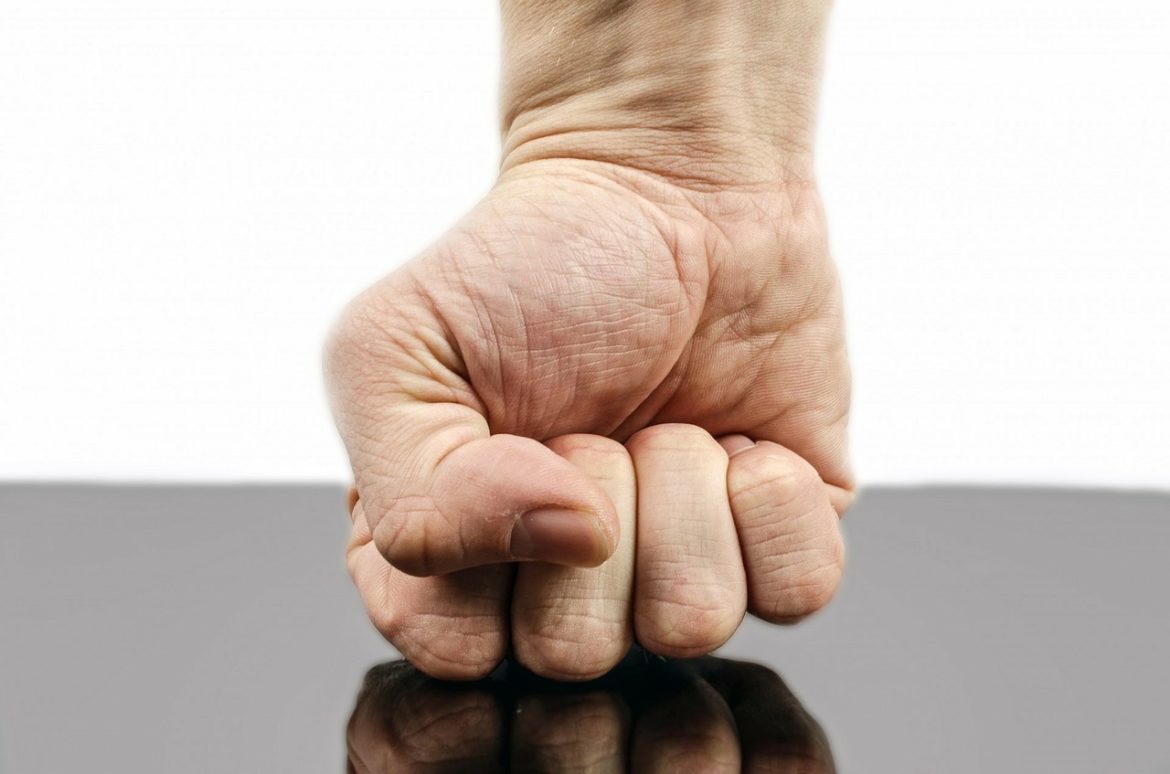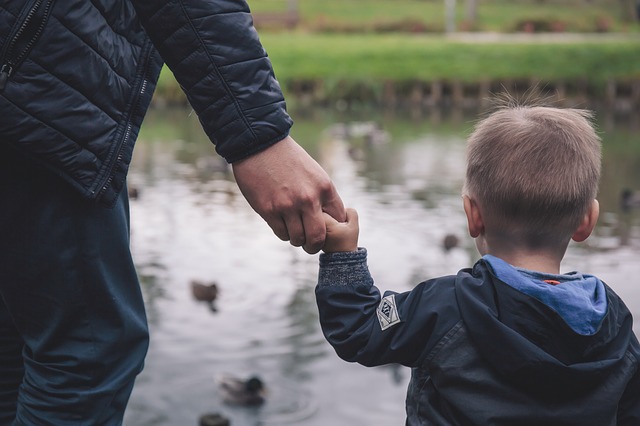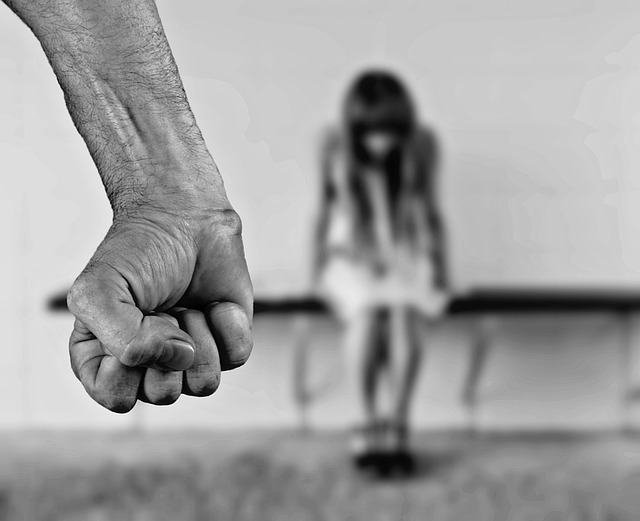
5 signs your dad is abusive
This article focuses on the abusive father for simplicity’s sake, but these signs apply to mothers, partners, friends or whoever in your life that portrays these behaviors. Additionally, these 5 signs are just a few out of many abusive behaviors that exist.
1. Your dad is the child and you are the parent

This type of dad makes you believe that your biggest goal in life is to solve his problems and ease his pain no matter what the cost to you. He will teach you to ignore your own feelings and only pay attention to how he feels, what he wants, and what he needs. The toxic dad who needs parenting himself will also expect you to protect him instead of him protecting you. He will ask you to lie for him, cover up for him and defend him in case he needs you to. You will constantly feel like all your good feelings depend on his approval and acceptance of you. With this type of childish and immature father, it is also common for you to have to keep his behaviors secret from your friends out of embarrassment and shame that you may feel. As an adult, you may still feel that you will do anything for your dad, for his approval and for his happiness. Even if that means you are completely unhappy, exhausted from helping him and feel like you are being taken for granted. This type of father makes you feel used, angry and hurt most of the time. But you also have an almost compulsive need to please him no matter what and you don’t know how to stop yourself from giving too much. If your value as a child came from being a caretaker to your dad or maybe even both parents you were never able to develop your individual self or enjoy the freedom of imaginative play or learn to let down your guard and be spontaneous. In addition to being a caretaker of your dad, you can easily fall into the same trap as an adult, becoming the caretaker of everyone around you such as your partner, friends, colleagues, strangers and so on.
2. You needed to support him emotionally

If you had to take care of your father’s emotional needs because he couldn’t take care of his needs on his own, you had an emotionally abusive father. He leaned on you a lot during your upbringing by sharing with you his adult problems, concerns and how unhappy he felt with your mother. He may have had a short temper which meant you had to tiptoe around him in order to not make him angry. If he became angry he would blame you for causing it and tell you “if you would have been a good girl I wouldn’t have yelled at you” or “If you be more of this or less of that I wouldn’t be so angry at you”. The emotionally immature father will ask you to help him with his relationship issues, telling you to be “a good girl” so that mom can be in a better mood. He will not be protective like a healthy father should be but instead constantly ask you to be more perfect, better or something else in order to make him and your mom proud and happy. Nothing you ever do is ever good enough to him, it seems that even if you would give your life over to him he would still find something in you that isn’t good enough. He will tell you that he is only staying with your mother because of you, thereby putting the blame on a child who is completely innocent in this matter. But as a child, you take on the responsibility of your father’s unhappiness and feel tremendous guilt for not being able to fix his problems, help him feel better and even help your mother to feel better. When in reality, it is never a child’s place to help or solve their parent’s problems and neither are they equipped to do so. This type of abusive parenting makes you as a child feel like there is no one you can turn to in order to get your own needs met. No one to talk to that will understand or listen, no one to share things with and you are not given the right to be a child. Being a child is every child’s birthright, you are supposed to be allowed to be a child, have fun, play, be irresponsible and not be burdened by adult problems, needs and responsibilities. Your parents are supposed to take care of you, they are the adults you were the child.
3. Your father always complains about his life yet never does anything about it

If your father used to explain to you about having a difficult childhood and how must stress he is under this in itself is completely inappropriate because you should never hear this information in the first place. Complaining about problems to you is bad enough but not doing anything about it as an adult is equally bad and also unhealthy. You may have told your father to get help, seek out a therapist or a doctor but he will tell you that there is nothing wrong with him. He will tell you it’s you who needs to change or your mother or the world. He will refuse to take any responsibility for his own behavior and blame everyone else for his problems. Your father is a parent, therefore he is responsible to take care of you and the rest of his children. He is an adult who made the choice to have children (as all parents do) and he is accountable for how he treats you. He is accountable for his behavior and how this affects you and how much it makes you suffer. When he shares his problems with you, as a child your natural desire will be “to make daddy happy again” and you will listen, try to make him smile, hug him, tell him not to be sad and use the little tools a small child has in order to help him feel better. The toxic father will then praise you for being so sweet and helpful, tending to his needs and trying to make him feel better. This however creates a huge problem for you as a child and later on as an adult. The reason being, your father is giving you love, attention and praise for being a helper, rescuer and problem solver for his needs. In other words; He is not loving you for who you are but for what you do for him. As an adult you may find yourself behaving in the same ways with intimate partners, choosing people who need/want you to rescue them, solve their problems, fix them somehow and they will praise you every time you try to help. But all you really want is to be loved for who you are, not for what you can do and be for other people.
4. Your father is addicted to alcohol, drugs and/or is depressed

If you grew up with an alcoholic father having to adjust, care for and tiptoe around him, you may find yourself a caretaker to everyone in your life. Did you choose a career in nursing (very common), social work and counseling? Growing up with an addict is devastating for a child for many reasons:
- What’s normal and not gets distorted.
- A child’s natural instinct is to look up to dad as a role model but seeing your dad acting out of control and destructive feels confusing and scary. You make excuses for dad’s behaviors and worse, blame yourself for it.
- Your father lost control of himself constantly and you heard and saw things a child should never have to. This left you terrified, lonely and sad. You often saw your father unconscious and you could never trust or rely on him as a dependable, stable adult throughout your upbringing.
- You never had a safe space in the only home you grew up in, instead, you lived in chaos, ups and downs, mood swings and a very unpredictable father. When you tried reaching out to him you never really felt heard, seen, understood or loved.
- You had to live with abuse, either emotional, physical or even sexual abuse and all three of these have their own devastating effects on your mind and body. Additionally, this is traumatizing. It affects your adult life tremendously and many years of therapy is required to heal and recover.
- You may have overachieved in order to avoid abuse from your father.
The alcoholic father never takes responsibility for his problems, he may even blame you for his drinking and say things like “I drink because of you”, “You make me crazy so I have to drink in order to function”. This gives a child tremendous guilt, shame and makes them carry a burden which children should never have to carry. The burden that your father is carrying he transfers to you.
The alcoholic father essentially morphs into a helpless needy child and you may have very mixed feelings even as an adult to cut him off. You may think of him as your child and feel guilt for even thinking of “abandoning” him. You may feel drained mentally, physically and emotionally from the never-ending caretaking of your father and even of other people around you. Trying to rescue people left and right is most definitely an exhausting task. Here’s the thing, who is rescuing you?
You are supposed to rescue yourself because know this; emotional, mental and physical energy are limited! You have limited energy that you can spend during the day and throughout your life. This is the same energy you need to pick up a glass of water to hydrate yourself, cook food to feed yourself, exercise to nurture and keep your body healthy, work in order to pay your bills, take care of your children if you’re a parent, etc. But if you give away most of your energy to your alcoholic father or other people who are not interested in being rescued how is this going to affect you long term?
It is NOT your responsibility to rescue your father or any other adult in this world. Being an adult means you have to take responsibility for your own life. You have already paid your father by giving him your childhood, how much more will you allow him to take from you? You deserve to set yourself free from the burdens he has been putting on you.
And the fact is that you always deserved to have a childhood that was free from addiction, free from responsibilities a child should never carry, free from pain and suffering caused by having an alcoholic father and a passive mother. You deserved to be seen, heard, acknowledged, loved and cherished as a child. You deserved to be tucked in at night, kissed and hugged and told how precious and lovable and incredible you are. To have dependable and reliable parents who should’ve protected, encouraged and guided you through the overwhelming developmental stages a child has to go through. You never got this because your father was an alcoholic and your mother was probably a passive bystander who allowed this abuse to continue. Even though you may have gotten some affection occasionally, you know that it was never enough and it shouldn’t be enough. Because it is every child’s birthright to be loved, cared for, adored and acknowledged their entire childhood.
5. The distant, neglective and physically abusive father

Unavailable, distant, cold busy taking care of his own needs, this type of father doesn’t care about your needs at all. He will blame you for almost everything wrong in his own life, show contempt towards you and make you feel horrible about yourself. His problems, failures in life, dissatisfaction at work and everything else he can think of is your fault according to this type of father.
These type of fathers starves you of love, protection, affection, kindness, attention, approval and everything else that a child needs in order to develop, feel safe and loved. Fathers who are cold and distant to this level usually have been severely traumatized themselves and never gotten tenderness, love and affection as children. This, however, does not excuse your father’s behavior because like I’ve mentioned before, as an adult he is and was responsible to seek out therapy and/or find another way to heal his own pain. He has no right to transfer his pain onto you, that is one of the most irresponsible things a parent can do and this is also why I think we see so much pain in the world today. Adults, refusing to take responsibility and mindlessly transferring their traumas and suffering onto the next generation. Living with a father like this who is completely emotionally, physically and mentally unavailable leaves a lifelong scar within you that takes many years to heal and recover from. As an adult, you may gravitate towards men who are emotionally unavailable, physically or emotionally abusive and who are incapable of giving you what you need. You will find yourself feeling the same way in these relationships as you did when you were a child, neglected, not seen, not heard and ignored yet at the same time it will feel familiar. You may feel like you’re more of a burden or nuisance than an equal partner who is loved and respected in the relationship. This is called the repetition compulsion in psychology where you try to recreate the same environment or situation in order to this time “get it right”. In order words, you recreate the scene from your childhood as an adult in order to get the love, attention, understanding, acknowledgment that you never got as a child. This rarely ever works and the sad part is that it only traumatizes you even further. Because seeking out an emotionally unavailable partner in order to make them love you is an impossible task from the getgo. Why? Because the one you seek out is emotionally unavailable and this means they cant give you what you need. You’re essentially looking for water in a dried-up well.
If you grew up with both your parents, your mother’s passive behavior hurt you no less. Because your mother’s passivity and failure to protect you from your father’s abuse is no less guilty and rest assured she is abusive as well. Passivity is not equal to being innocent. Your mother standing there watching you being neglected, abused and treated in the cruelest of ways by your father is just as guilty as your overtly abusive father. This betrayal belongs to both your parents, not just your father. Why did your mom not protect you from your father you may wonder? Usually, this is because she doesn’t want to risk being hurt, abandoned or abused by her partner. She will do anything to hold on to her partner no matter how cruel, violent or neglectful he may be towards you. She will ignore your pleading for help and even rationalize your father’s cruel and unacceptable treatment towards you. The most important thing to remember here is that both your parent’s cruel and passive behavior towards you has nothing to do with your worthiness, it has everything to do with how incapable and irresponsible they are as parents.
If you can relate and recognize any one of these 5 abusive behaviors in your father (or anyone else in your life) this is traumatic and has a negative effect on your mental, psychological and even physical health. Therapy is a powerful tool to heal and recover from the traumatic experiences you’ve suffered through and healing from past childhood traumas can prevent a lot of pain in the future. You don’t have to keep suffering and you don’t have to either abandon parents who are abusive towards you but you can find ways to protect yourself and heal at the same time. Feel free to contact me in case you are willing to try therapy with me, I work with clients every day who suffer from abuse of different kinds and traumatic stress.
You can contact me here www.khanselma.com/contact. I always answer all my emails within 24 hours.
Thank you for reading and if you find this article helpful and believe it can help someone else please share it.
Love,
Selma


Leave a Reply